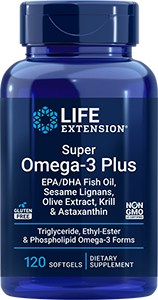Fish Oil Benefits

5 Healthy Reasons to get more Fish Oil in your Diet
By Colleen McMahon
Mild white fish like tilapia are healthy and popular sources of protein. However, for even greater health benefits, you should look to fatty fish like salmon, tuna, and mackerel as well.
These types of fish contain omega-3 fatty acids like docosahexaenoic acid (DHA) and eicosapentaenoic acid (EPA), and in recent years scientific research has suggested numerous ways these fats improve our health.
Omega-3 fatty acids, essential to cell building, must come from our diet because our own bodies do not produce these acids. In addition to playing a significant role in fetal brain development during pregnancy and infancy, consumption of omega-3 fatty acids can provide important protective health benefits throughout life.
Omega 3 Benefits
1. Improve brain function and memory.
Medical research has shown that DHA plays a major role in brain functions. Low levels of DHA in the body are associated with brains that age faster and an increased risk of developing Alzheimer's disease and other cognitive and memory disorders.
Moreover, studies have shown promising results in using fish oil to help treat Attention Deficit Hyperactivity Disorder (ADHD) in children and young adults, and to help level mood swings and lengthen the time between depressive periods in people with bipolar disorder.
Products
2. Reduce the risk of heart attack.
DHA and EPA are considered "good fats" that help reduce cholesterol and triglycerides levels and lower blood pressure. These acids also help prevent blood clots in the circulatory system, and reduce inflammation that contributes to coronary disease.
According to a 2012 study published in Environmental Health Perspectives, fish oil supplements even appear to help protect healthy adults from the effects of air pollution on cardiac health.
3. Reduce the risk of cancer.
Various medical studies have shown that fish oil appears to help reduce the risks of developing breast, prostate, and colon cancer. Postmenopausal women who take in more omega-3 fatty acids from eating fish or taking fish oil supplements are less likely to develop breast cancer.
4. Reduce the effects of inflammatory diseases.
Inflammation has been found to be a factor in numerous chronic conditions, including lupus, arthritis, colitis, and asthma. Chronic inflammation in the body is also associated with conditions that lead to the development of heart disease and diabetes.
Omega-3 fatty acids have natural anti-inflammatory properties that can reduce the risk of heart disease and diabetes, and relieve pain and other symptoms of conditions like arthritis.
One study through the University of Bristol found that guinea pigs fed a diet high in omega-3 fatty acids had a 50 per cent reduction in symptoms of arthritis compared to a control group fed a standard diet.
5. Help with fat-burning and weight loss.
An Australian study found that fish oil supplements provide a powerful boost to weight loss efforts. A group of overweight adults undertook a program of moderate aerobic exercise, and part of the group also took fish oil supplements.
Another group only took the fish oil without additional exercise. At the end of 12 weeks, the group that took fish oil along with moderate exercise had better results than the groups that only exercised or only took the supplements. Significantly, much of the difference had to do with loss of abdominal fat, which is a key factor in lowering the risk of diabetes.
6. Slow the aging process.
Many of the degenerative effects of aging are linked to the shortening of telomeres in our chromosomes. Telomeres are strands of DNA at the ends of chromosomes, and these tend to become shorter as we age, much as worn fabric frays at the edges.
The shortening of the telomeres can affect the ability of chromosomes to duplicate themselves correctly, and this degeneration over time can lead to a variety of age-related conditions. In a study done over 5 years, people with a diet high in omega-3 fatty acids had longer telomeres than their counterparts who had diets lower in omega-3s.
Debate continues to rage over whether it is better to consume fatty fish like tuna and salmon, or to take fish oil supplements. While obtaining nutrients through whole foods is always a good route, there are disadvantages to eating a diet too rich in these fish.
Their position near the top of the food chain means that many species are in danger of being overfished, and the fish can have higher levels of mercury in them. Also, some people simply do not like the taste of stronger-flavored fish.
Supplements
This is where fish oil supplements can play an important role. Make sure you choose a high-quality, pharmaceutical grade brand of fish oil supplement.
Supplements are available as capsules or liquid. Some capsules contain a special coating to prevent a fishy taste or aftertaste, which can be important to some who want to gain the benefits of fish oil but dislike the flavor of fish.
About the Author
She has a Masters Degree in the study of Humanities, History and Literature. She writes on health and wellness, business, marketing, personal finance and insurance.



